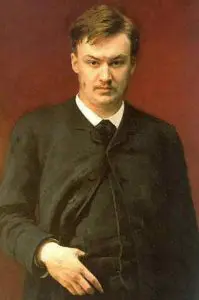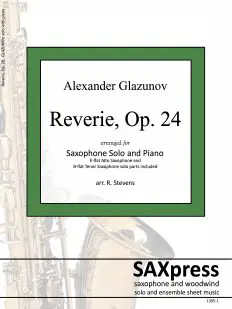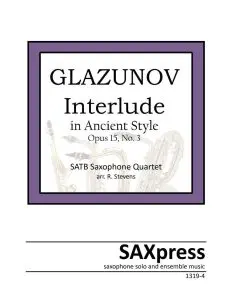Alexander Glazunov

Alexander Konstantinovich Glazunov
Born: 10 August 1865
Saint Petersburg, Russia
Died: 21 March 1936
Neuilly-sur-Seine, France
Alexander Glazunov was a Russian composer, music teacher, and conductor of the late Russian Romantic period. He was director of the Saint Petersburg Conservatory between 1905 and 1928 and was instrumental in the reorganization of the institute into the Petrograd Conservatory, then the Leningrad Conservatory, following the Bolshevik Revolution. He continued as head of the Conservatory until 1930, though he had left the Soviet Union in 1928 and did not return. The best-known student under his tenure during the early Soviet years was Dmitri Shostakovich.
Glazunov successfully reconciled nationalism and cosmopolitanism in Russian music. While he was the direct successor to Balakirev’s nationalism, he tended more towards Borodin’s epic grandeur while absorbing a number of other influences. These included Rimsky-Korsakov’s orchestral virtuosity, Tchaikovsky’s lyricism and Taneyev’s contrapuntal skill. Younger composers such as Prokofiev and Shostakovich eventually considered his music old-fashioned, while also admitting he remained a composer with an imposing reputation, and a stabilizing influence in a time of transition and turmoil.
Glazunov toured Europe and the United States in 1928, and settled in Paris by 1929. He always claimed that the reason for his continued absence from Russia was “ill health”; this enabled him to remain a respected composer in the Soviet Union, unlike Stravinsky and Rachmaninoff, who had left for other reasons. In 1929, he conducted an orchestra of Parisian musicians in the first complete electrical recording of The Seasons. In 1934, he wrote his Saxophone Concerto, a virtuoso and lyrical work for the alto saxophone. Glazunov died in Neuilly-sur-Seine (near Paris) at the age of 70 in 1936.
Alexander Glazunov works available at SAXpress
Showing all 2 resultsSorted by latest


